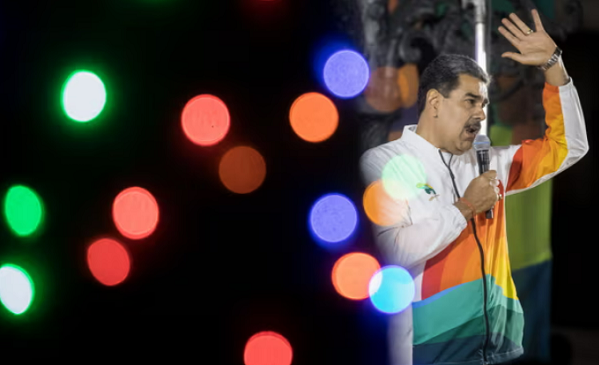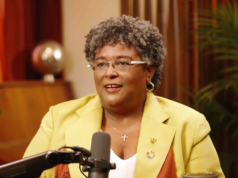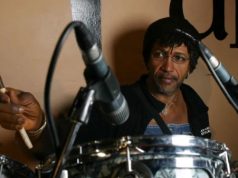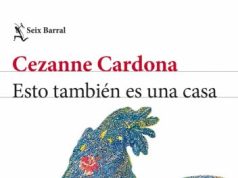
Luke Taylor (The Guardian) writes that turnout was minimal in vote on referendum intended to rubber-stamp Venezuela’s claim to Essequibo region.
The government of Guyana has breathed a sigh of relief after a referendum intended to rubber-stamp Venezuela’s claim to about two-thirds of the tiny South American country’s territory appeared to have backfired.
Nicolás Maduro had hoped to leverage his country’s century-long claim to the disputed Essequibo region to mobilise public support but voting stations across the country were largely quiet on Sunday as most voters shunned the issue.
The turnout appeared so underwhelming that the Venezuelan government has been widely accused by analysts of falsifying the results. “The Venezuelan people have sent Maduro a very strong message and I do hope that Maduro has taken note of what they’ve said,” said Robert Presaud, Guyana’s foreign secretary, on Monday.
[. . .] Venezuela has laid claim to the oil-rich Essequibo region ever since it gained independence from Spain in 1811, alleging that its borders were drawn up unfairly in an act of international collusion.
The dispute is being reviewed in the international court of justice, but Maduro has pleaded for weeks on TikTok and national TV for the Venezuelan public to back the government to take matters into its own hands.
Among the five questions asked on Sunday were whether Venezuela should ignore the international arbitrators at The Hague, grant Venezuelan citizenship to Essequibo’s English-speaking inhabitants and convert the 160,000 sq km of territory into a new Venezuelan state.
Both Guyana and Venezuela have increased military activity on their borders in recent weeks as tensions between the bickering nations reached unprecedented heights. Brazil also sent troops to its jungle frontier over the weekend as fears grew that the vote could spark military action.
But voting stations across the country were largely empty, national and international media reported. “I have seen no independent reports of queues anywhere in the country. It looked like a normal Sunday in Caracas,” says Phil Gunson, analyst at international crisis group. “It was a resounding failure for Maduro.” Nonetheless, Maduro was quick to hail the vote – in which 95% of those who voted yes to the government’s five questions – as a victory. [. . .]
Intelligence collected by Guyana and its allies suggest the actual turnout was fewer than 1.5 million people – less than a 10th of the population – said a source close to the Guyanese government who described the move as “rigonomics”.
“I think Maduro miscalculated in a very, very big way,” the source added.
Guyana remains on high alert given the unpredictability of the Venezuelan president, Guyana’s foreign minister, Hugh Todd said. [. . .]
The Essequibo is home to only 120,000 of Guyana’s 800,000 people but the vast swath of jungle is rich in natural resources including copper and gold.
Maduro’s rhetoric over the region has become more bellicose since massive oil reserves were discovered in 2015 but the weekend’s plebiscite is seen foremost as a way to gauge how many people he can mobilise in presidential elections expected for next year.
[. . .] The Essequibo is the only issue that unites Venezuelans across the political spectrum, but the vote suggests people care more about more pressing issues, such as the economic collapse which has driven more than 7 million people to flee the country, Gunson said. [. . .]
For full article, see https://www.theguardian.com/world/2023/dec/04/maduro-venezuela-guyana-essequibo-referendum-vote-turnout
[Photo above by Miguel Gutiérrez/EPA: The president of Venezuela, Nicolás Maduro, speaks during an event after the referendum for Essequibo, in Caracas on Sunday.]
Luke Taylor (The Guardian) writes that turnout was minimal in vote on referendum intended to rubber-stamp Venezuela’s claim to Essequibo region. The government of Guyana has breathed a sigh of relief after a referendum intended to rubber-stamp Venezuela’s claim to about two-thirds of the tiny South American country’s territory appeared to have backfired. Nicolás Maduro








